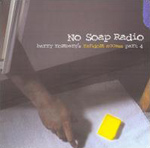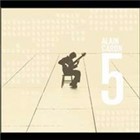Home » Jazz Articles » Profile » Ron Carter
Ron Carter
I'm trying to find out what the top of the mountain looks like and the only way to get there is by playing every night like it
 To create one of the most storied careers in jazz, a good recipe might be equal parts innate talent, hard work and the karma of being as stand-up a person as the bass you play.
To create one of the most storied careers in jazz, a good recipe might be equal parts innate talent, hard work and the karma of being as stand-up a person as the bass you play. Ron Carter's gigging and recording career spans half a century and 100s of albums, including having anchored one of the most esteemed rhythm sections in jazz history; his name is practically synonymous with his instrument. Some might consider that having reached the pinnacle.
"Well, I'm kind of like Martin Luther King, but I haven't been to the mountaintop yet , said Carter. "I'm trying to find out what the top of the mountain looks like and the only way to get there is by playing every night like it's my last chance to get this right. I think I've come close several times and the view, I would imagine, is spectacular. I'm about at the tree line right now - but I'm getting there.
The boldface items on Carter's resume are well known, one of the most prominent being his stint in the Miles Davis Quintet from 1963 to 1968, where alongside Herbie Hancock, Tony Williams and Wayne Shorter he contributed to landmark and widely influential albums like E.S.P., Miles Smiles and Filles de Kilimanjaro. The list of other jazz luminaries who've sought his talents over the years is like a portrait gallery of the music's greats.
Perhaps not as well known is the deep and thorough preparation Carter, now 68, had leading up to that period with Miles, starting with his study of cello from the age of ten and continuing through his Bachelor's degree from the Eastman School of Music in Rochester, New York and his Master's in double bass performance from the Manhattan School of Music. It was preparation that provided a foundation for Carter to proceed with confidence out into the world of the working jazz musician.
"I never questioned my ability to find work in New York, said Carter. "When I was in school in Rochester, I met Sam Jones and the late bassist Ike Isaacs, who was with Carmen McRae at the time, and they assured me that a good bassist could always work in New York and that was enough for me. I had no specific focus on being a 'famous jazz player', but I felt I had a great classical background, I knew the literature, I was learning the jazz library by working these gigs and I felt that if I could be a complete bassist, I could find work and support a family.
 Carter's education has also enabled him to create some superb, if under-appreciated, music as a leader, such as his nonet recording Eight Plus (Dreyfus). It includes a cello quartet and Carter on piccolo bass. Who would have thought a string section could play such a stomping blues, as on Carter's arrangement of "A Song for You ? "I've studied composition and arranging skills, and I'm using my classical experience as another tool to make my jazz work better, he said. Though recorded in 1990 by Rudy Van Gelder, Eight Plus wasn't released in the U.S. until 2003. "I'm sorry that it didn't get more attention that I thought it deserved, said Carter. "What's lovely to me about that record is it's 15 years later and it sounds like it was recorded yesterday.
Carter's education has also enabled him to create some superb, if under-appreciated, music as a leader, such as his nonet recording Eight Plus (Dreyfus). It includes a cello quartet and Carter on piccolo bass. Who would have thought a string section could play such a stomping blues, as on Carter's arrangement of "A Song for You ? "I've studied composition and arranging skills, and I'm using my classical experience as another tool to make my jazz work better, he said. Though recorded in 1990 by Rudy Van Gelder, Eight Plus wasn't released in the U.S. until 2003. "I'm sorry that it didn't get more attention that I thought it deserved, said Carter. "What's lovely to me about that record is it's 15 years later and it sounds like it was recorded yesterday. Another lesser-known aspect to Carter's life, though not surprising given his own schooling, has been his career as an educator. He recently retired after 18 years on the music faculty at City College of New York, though not before being honored with the title of Distinguished Professor Emeritus.
"That's not something that the College bestows, said Barbara Hanning, Professor of Music at City College and chair of the music department during much of Carter's time there. "It has to be applied for and then Ron had to go up before the Board of Trustees and be voted on by people outside of our little club! It was a very rigorous procedure that involved scrutinizing his work. He was a stellar and sterling colleague and one of the last things I did as chair was to be in charge of the search that hired his replacement.
That replacement happens to be John Patitucci, a formidable bassist in his own right and, like Carter once was, a collaborator with Wayne Shorter. "Ron is one of the primary reasons that I started playing the acoustic bass, said Patitucci. "His amazing sound, the architecture of his bass lines and his impeccable time feel, among other things, have made him one of the most influential bass players in the history of jazz. He continues to inspire us all.
As nearly two decades in academia would indicate, Carter believes in the importance of formal jazz education today. "There's not that much jazz available in the streets, so to speak , he said. "There's no jazz on TV, there's limited jazz on the radio and many nightclubs that were around when I was a college student have all gone. So those real basic formats of learning music and making connections with people are not in existence right now and there must be some way to continue to propagate this music since those formats are less regularly available. I think a reputable college program with a good director can be a wonderful stepping stone to replace those venues that are no longer here.
 Such dedication by Carter to the musical development of younger students is something that Barbara Hanning witnessed time and again. "Ron would often, after being away, come back and land in New York at six o'clock in the morning and be at his nine o'clock class, said Hanning. "You can imagine that everybody wanted to study with him, she continued, "and he would fight with me, in a good natured way, about being able to teach a student who I didn't feel was deserving, because that student may not have passed the audition or who by choice didn't want to make performance their main thing. He kept saying to me, 'they're not going to get better if you don't give them lessons,' and I would say, 'yes, but we can't afford to give everybody lessons.' I was looking at it from a practical point of view, and he was looking at it from an educational point of view.
Such dedication by Carter to the musical development of younger students is something that Barbara Hanning witnessed time and again. "Ron would often, after being away, come back and land in New York at six o'clock in the morning and be at his nine o'clock class, said Hanning. "You can imagine that everybody wanted to study with him, she continued, "and he would fight with me, in a good natured way, about being able to teach a student who I didn't feel was deserving, because that student may not have passed the audition or who by choice didn't want to make performance their main thing. He kept saying to me, 'they're not going to get better if you don't give them lessons,' and I would say, 'yes, but we can't afford to give everybody lessons.' I was looking at it from a practical point of view, and he was looking at it from an educational point of view. If Carter believes in formal classroom study of harmony and composition, he also stresses the importance for young bassists to seek out private instruction on the instrument. "I tell all bass players, get a teacher, said Carter. "It seems to me that the bassist, generally speaking, is the last guy to have had lessons on his instrument. And he's behind everyone else's skill level in harmony, theory, composition and arranging skills. So it's invaluable. I can't tell you how many bass players I've spoken with who have said, 'if I'd had a teacher long ago, dot-dot-dot,' and I say, 'well, we can still do this, give me a call.' And we get together! Unfortunately for aspiring bassists, there aren't any openings at the moment. "I have four private students, said Carter, "and that's plenty right now!
Though Carter may have left City College, his days don't seem to be slowing down that much. "I thought that when I retired from school I'd have less work, but I find now that I'm more available I'm getting more calls, he said. "So I haven't gotten to that stage in my head yet where I think scaling back is part of my plan for the future.
Indeed, Carter recently returned from a European tour with his quartet (including musical equipment and luggage lost by the airlines, an unfortunate additional stressor to being a leader) and in December plays Carnegie's Zankel Hall with his trio featuring pianist Mulgrew Miller and guitarist Russell Malone. It's not the first time Carter has used a piano-guitar-bass trio—his outstanding 1994 album Jazz, My Romance (Blue Note) has Kenny Barron and Herb Ellis - and it's a format he's attracted to for several reasons.
 "First, there's not another rhythmic voice involved, in terms of pure rhythm, as a drummer would be, said Carter. "Second, it increases the range of the bass for me. People don't think of drums as having pitches or definite tones, but they clearly do, he explains. "Occasionally you'll find a drum cymbal that kind of rings through and it's the wrong pitch for the tune or the bass drum or the floor tom aren't tuned correctly, and they make the bass notes just disappear. So without this sonic problem that the drums can sometimes present, it's a nice change to have the bass range fully available to me.
"First, there's not another rhythmic voice involved, in terms of pure rhythm, as a drummer would be, said Carter. "Second, it increases the range of the bass for me. People don't think of drums as having pitches or definite tones, but they clearly do, he explains. "Occasionally you'll find a drum cymbal that kind of rings through and it's the wrong pitch for the tune or the bass drum or the floor tom aren't tuned correctly, and they make the bass notes just disappear. So without this sonic problem that the drums can sometimes present, it's a nice change to have the bass range fully available to me. As close to the mountaintop as Carter is at this point in his career, he still looks across the valley to other peaks - like learning to play guitar. Of course, he can empathize with students who sometimes don't feel up to practicing. "I have one here in my apartment that's probably got cobwebs on it, he said, laughing. "I look at it and say, nah, not today. Soft-spoken, articulate, and good-humored, Carter knows that his legacy lies elsewhere. "What I'd like when they put that R.I.P. on my tombstone is for it to say, 'he was a wonderful bassist and a great friend.'
Selected Discography
Ron Carter (with Eric Dolphy & Mal Waldron), Where? (New Jazz-OJC, 1961)
Herbie Hancock, Empyrean Isles (Blue Note, 1964)
Miles Davis, Miles Smiles (Columbia/Legacy, 1966)
Archie Shepp, The Way Ahead (Impulse!/GRP, 1968)
The Great Jazz Trio, At the Village Vanguard (East Wind/Test of Time, 1977)
The Great Jazz Trio, At the Village Vanguard Vol. 2 (East Wind/Test of Time, 1977)
Joe Henderson, The State of the Tenor: Vol. 1 & 2 (Blue Note, 1985)
Photo Credit
C. Andrew Hovan
Tags
PREVIOUS / NEXT
Ron Carter Concerts
Support All About Jazz
 All About Jazz has been a pillar of jazz since 1995, championing it as an art form and, more importantly, supporting the musicians who make it. Our enduring commitment has made "AAJ" one of the most culturally important websites of its kind, read by hundreds of thousands of fans, musicians and industry figures every month.
All About Jazz has been a pillar of jazz since 1995, championing it as an art form and, more importantly, supporting the musicians who make it. Our enduring commitment has made "AAJ" one of the most culturally important websites of its kind, read by hundreds of thousands of fans, musicians and industry figures every month.

























